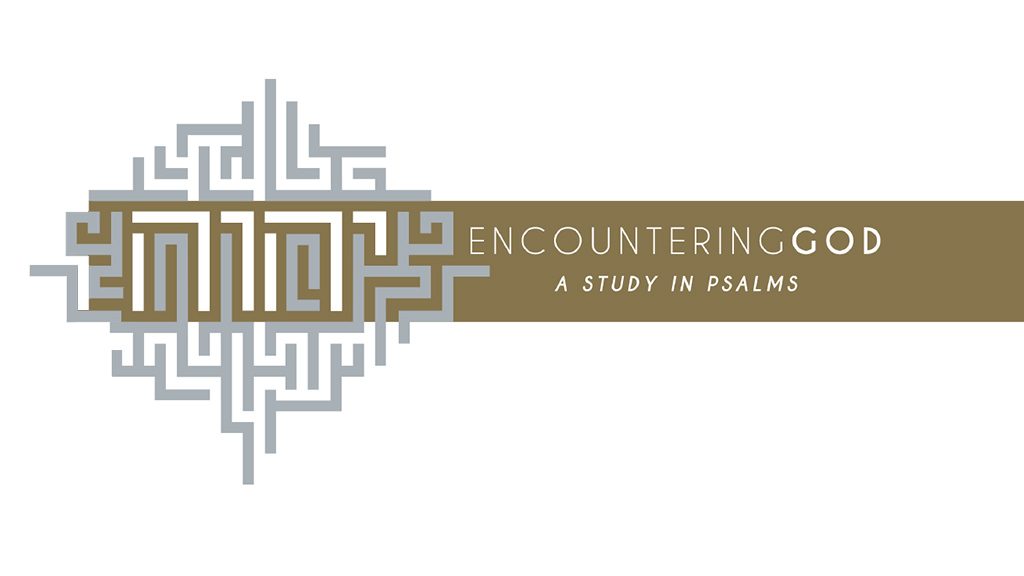Three times a year the Jewish people were required by law to make a journey to the city of Jerusalem for their annual feasts. These festivals were called Passover, Pentecost, and Tabernacles. These pilgrimages were times of worship resulting in spiritual refreshing, renewing, and rejoicing.
On their long journey, the traveling pilgrims would sing the book of Psalms, the Jewish songbook. In particular, they sang their way through Psalms 120–134. This section is known as the Psalms of Ascent.
Why this designation? Topographically, Jerusalem was the highest city in Israel (2,478 feet above sea level). Everyone who traveled there spent most of their time going up or ascending. Therefore, they were called Psalms of Ascent because pilgrims sang them on their journey up to Jerusalem.
Why did they sing these specific psalms? There was a deeper purpose than just helping weary travelers mentally endure a tough physical hike. They were instructional. They taught spiritual lessons to spiritual pilgrims as they encountered the difficult road of life. They were also inspirational. They strengthened pilgrims’ knowledge and faith as they faced the struggles of the journey.
So what can we learn from Psalm 121? Travel in ancient times was both difficult and dangerous. There were perils at every turn. The lesson this psalm is communicated to all pilgrims is that God is both our helper and keeper throughout life’s journey. So what do all spiritual pilgrims encounter about God on life’s journey.
The Lord Is Our Helper
Psalm 121:1–2
I will life up mine eyes unto the hills, from whence cometh my help. My help cometh from the Lord, which made heaven and earth.
The word for help in Hebrew is found in Genesis 2:18 and 20 as a description for the first woman, who was created to be the helper of the first man.
And the Lord God said, It is not good that man should be alone; I will make him an help meet for him. … And Adam gave names to all cattle, and to the fowl of the air, and to every beast of the field; but for Adam there was not found an help meet for him.
The name Hebrew parents gave their child often reflected their trust in God through the experiences of life. In Exodus 18 Moses named his second son Eliezer. By naming his son Eliezer, Moses testified that God delivered him from certain death by the sword of the king of Egypt (Ex. 18:4).
The Lord is our helper. He does not abandon His children. He promises to come and assist us as a helper through the difficulties of our journey.
The opening verse of Psalm 121 poses an interpretation issue. Some English translations place a question mark at the end of the phrase: “From whence cometh my help?” The idea is that when travelers hiked from Jericho up to Jerusalem, the journey was so treacherous and dangerous that a pilgrim saw the hills and became concerned about his safety. The phrase would be a question of concern: “Where is my help in this foreboding circumstance?”
Others interpret this phrase by placing a period at the end of the sentence so that it becomes a statement of confidence. That is, “My help comes from the place (Mount Zion) where the presence of God dwells in the temple.” David makes a similar statement in Psalm 20: “The name of the God of Jacob defend thee; send thee help from the sanctuary” (20:1–2).
In either case, whether it is a statement or a question, the writer’s answer is clear regarding the source of his help: “My help cometh from the Lord, which made heaven and earth” (121:2). The Lord truly is our helper throughout life’s journey. As Creator of the heavens and earth, He serves, supplies, and supports His children by providing all our needs.
In 1 Samuel 7 the ark of the Lord was placed in a town called Kiriath-jearim and stayed there for twenty years. During this time the Israelites drifted away from the Lord. The prophet Samuel spoke to God’s people and said that if they returned to the Lord, then He would deliver them out of the hand of their enemies, the Philistines. Samuel’s instructions to God’s people were very clear:
- Return to the Lord with all your hearts
- Put away the idols you adopted from the heathen
- Prepare your hearts to be devoted to God’s service alone
What did they do? The people responded in humility and obedience. Samuel called for all Israel to gather at Mizpah to pray to God. When the Philistines heard that Israel was in Mizpah, they went up to battle against them. The quickly approaching enemy terrified the Israelites, and they became desperate. They told Samuel to continue in perpetual prayer to the Lord. And God did a powerful work, raining down thunder and confusion and death on the Philistines (1 Sam. 7:10)!
As a result, Samuel set up a stone to remember what God had done.
Then Samuel took a stone, and set it between Mizpah and Shen, and called the name of it Eben-ezer [the stone of help], saying, Hitherto hath the Lord helped us. (1 Sam. 7:12)
So in the second stanza of the great hymn, “Come, Thou Fount of Every Blessing,” we sing:
Here I raise my Ebenezer;
Hither by Thy help I’m come;
And I hope, by Thy good pleasure,
Safely to arrive at home.[1]
The Lord Is Our Keeper
The Hebrew word translated keep or preserve is used six times in these six verses to describe our God. It means He watches over us. “It was used to describe a gardener tending his garden (Gen. 2:15), a shepherd watching over his flock (Gen. 30:31), and a man watching over a house (Eccles. 12:3).”[2] It conveys the idea of caring for and guarding something, like a soccer goalie who guards his goal from the opposing team. God is our keeper in three ways as we journey through life.
He Keeps Us From Falling Under the Heavy Weight of the Journey
Psalm 121:3
He will not suffer thy foot to be moved.
Ancient travelers carried their luggage, and at times the weight was too much. Regardless of how heavy our burdens, we can roll them onto the Lord.
Cast thy burden upon the Lord, and he shall sustain thee: he shall never suffer the righteous to be moved. (Ps. 55:22)
He Cares for Us Constantly
Psalm 121:3–4
He that keepeth thee will not slumber. Behold, he that keepeth Israel shall neither slumber nor sleep.
God is never distracted or disinterested in our journey. He never takes a break for a nap because He is tired. When we sleep, He is awake and alert. His strength is always infinite. We experience unforeseen circumstances. We often talk about events that are outside of our control. Surprise and inability are two situations God has never experienced. We can take refuge in His constant care.
He Protects Us From Imminent Danger
Psalm 121:5–8
The Lord is thy keeper: the Lord is thy shade upon thy right hand. The sun shall not smite thee by day, nor the moon by night. The Lord shall preserve thee from all evil: he shall preserve thy soul. The Lord shall preserve thy going out and thy coming in from this time forth, and even for evermore.
The sun is oppressively hot in the Judean wilderness. The relentless heat drains the traveler of his strength, and heat stroke is an ever-present danger. A place of shade is a welcome comfort and relief. The psalmist is affirming that God provides comfort and relief from life’s heat.
The moon reminds us of the dangers that hide in the shadow and lurk in the darkness. Likewise, God is always there to protect us from all harm physically or spiritually.
In other words, the Lord is our helper and our keeper throughout the entire journey of life. God was with the pilgrims night and day as they went to Jerusalem and as they made their way home. God will be with us, His children, until we safely arrive to our heavenly home.
[1] Robert Robinson, “Come, Thou Fount of Every Blessing,” 1758.
[2] Steven J. Lawson, Holman Old Testament Commentary—Psalms 76–150, 268.
Listen to Dr. Pettit’s chapel message on Psalm 121:
Join us for chapel every Monday through Thursday at 11 a.m. EST.








